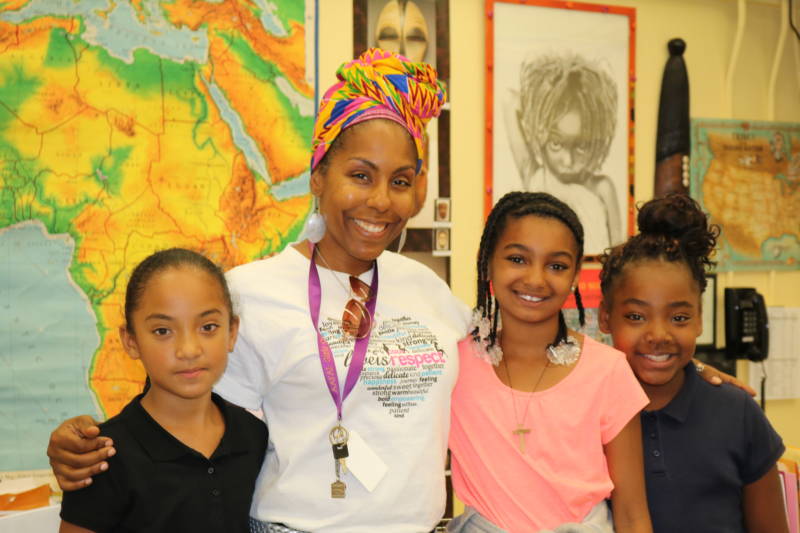At the after-school program at MLK Elementary you can sometimes find a group of girls singing their theme song.
“A - A - F - A - I. We’re here to be alive. Determined to survive. Strong. Bold. Smart. And fly.”
Corbett believes female students have unique issues that boys don’t. By creating the AAFAI program she wanted to give girls and educators a chance to call them out.
The girls get a dose of technology, song, dance, science and history focusing on female leaders like Madam C.J. Walker, a philanthropist and entrepreneur who created hair products for African-Americans in the early 1900s.
"She inspired me to grow up being an inventor," said fourth-grader Eleyah Fale.
District Takes Note
Oakland Unified School District is now planning to scale up this kind of initiative to bring it districtwide. It may provide specific programming, curriculum and teacher training in an attempt to better serve Oakland’s black female student population.
When Corbett presented the program to the OUSD board in 2014, she envisioned a district office designated just for African-American girls, she said. At the time, her after-school program had only 20 students. It grew to about 35 students in the last school year, and now there are roughly 75 students participating, she said. Corbett also created several partnerships over that time and received seed money from OUSD to grow the program.
Last year, Corbett said she helped OUSD research what a larger systemwide African-American female initiative might look like.
The district recently announced its own African American Girls & Young Women Achievement initiative, which follows OUSD's nationally recognized African American Male Achievement initiative that officially launched in 2010. Since then, the district reports African-American male suspensions have been reduced. And graduation rates have increased along with attendance, said Chris Chatmon, deputy chief of equity and formerly the director and founder of AAMA.
Chatmon said the approach with boys is about changing school culture, teaching more relevant books that highlight different black leaders, and training teachers to better respond to the needs of black male students. And the focus needs to be consistent. “The key emphasis is during the school day, Monday through Friday,” he said.
Fewer students are being referred for an expulsion hearing, and last year the school board passed a policy to stop suspending students for willful defiance.
But during the 2015-2016 school year, the number of black female students expelled ticked up from two the previous year to eight. African-American male expulsions increased from eight to nine. And Latino male expulsions increased from four to nine. The district also plans special programming for Latino students, said Chatmon.
AAFAI's Corbett said she looks forward to helping the district craft the initiative, including what will be measured and how success will be accomplished.
"I need to be at the table. My voice is important," she said.
Earlier this year she interviewed but didn't get the position as director of the district's African American Girls & Young Women Achievement initiative, Corbett said. The new director, Dr. Nzingha Dugas, starts Sept. 12.
